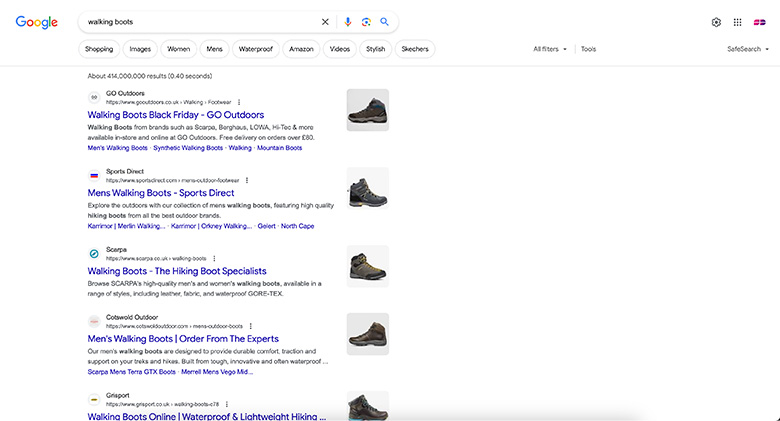If you mention content or digital media the term keywords will certainly follow. It was once the main focus for increasing traffic to your website, but over time Google has evolved its algorithms. Which means how you use keywords on a page has changed.
The days of packing your content with keywords both in terms of variety and frequency have gone by. It’s now all about the quality of your content. But what does that mean in terms of using keywords, and how do you define quality?
Explore what is meant by the term keyword
In simple terms, these are the words you put into Google search. The terms people use to search for information. In reality, a more accurate way to describe keywords would be key phrases – but nobody has renamed them as yet.
The content you create is produced in answer to our questions. So, there is a clear link between your audience and your content. It also shows you what language they use to describe what they’re looking for, which can also help with your writing.
The ultimate goal is to appear on the first page of Google for any search enquiry. For example – if you put ‘walking boots’ into Google, this page appears:

Here are four big brands showing the keywords ‘walking boots’ in their descriptions. This is great if it was that easy to gain first-page ranking, but it’s not that simple. There will be lots of other SEO activity happening on the website and in the background.
But let’s just go back to the search example. When you look at the page, there are some ideas for writing blogs which you can develop further.
- Waterproof and lightweight hiking boots
- Men’s walking boots for hiking
- Waterproof hiking boots
What you can also see is another popular term being used – ‘hiking’. You often discover a range of keywords around any search topic and you can weave these into your theme.
Exploring any of these areas in more detail will result in using keywords in your content and boosting your presence.
How to find your keywords
There are several tools you can use to create your list of keywords. Many of these are available for free and explain the information you are being given. Ubbersuggest is a good example.

You can enter your key phrases and a series of suggestions will be presented. Each column is explained so you can understand the numbers and what they are telling you.
Google’s Keyword Planner is another option. You will need to work your way through Google Ads but you don’t have to place an advert to get the information. Go through the screens and eventually the keyword section will appear and you can use the tool.
Alternatively, if you prefer, you can work with an SEO specialist. It does make things a whole lot easier because they’re focused on this area.
It has become a lot more complex and you need to keep up-to-date with algorithm updates. Keywords can be shared with you so all you need to do is write the content.
Integrate your keywords into your quality content
The definition of quality is arguably subjective. It’s a mark of excellence, but who defines what that would be? This is why you should go back to basics when producing quality content.
So, if you’re writing content – this is where to focus your efforts.
- Understand your audience – what and how are they searching, what language are they using?
- What do they want to read about? – do your research to find the conversations, and what are people saying about the topic.
- Develop your thoughts and opinions – form your views and generate content ideas
- Write in a style and tone that will engage your audience
- Set yourself a goal so you can measure the impact of your content – higher rankings, engagement, and traffic to your website
In reality, if you’re focussed in your approach you will naturally include keywords in your content. It’s also a good idea to include your keywords at the start of your piece.
But the most important factor is that your work reads well. Any hint of ‘word stuffing’ and you will be penalised. In essence, this is all that Google is trying to assess.
Search engines want content that will answer their audience’s questions. Why? Because that adds value to their offering. If you put yourself in this position your content will be considered quality and ranked accordingly.



